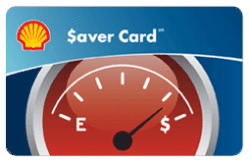Top Class Actions’s website and social media posts use affiliate links. If you make a purchase using such links, we may receive a commission, but it will not result in any additional charges to you. Please review our Affiliate Link Disclosure for more information.

Some stores charge returned payment fees and interest fees that consumers say were not outright conveyed at the time they signed up for these cards.
Terms such as “deferred interest” do not mean “no interest.”
What Is Deferred Interest?
Some store credit cards offer deferred interest financing. That means the store can charge interest retroactively and have it apply to the entire purchase amount if a late payment is received or if a small unpaid balance remains when the introductory period ends.
This can be a surprise to consumers who might think the interest will only apply to the little amount they still owe at the end of the introductory deal.
Shell Saver Card
The Shell Saver Card is a debit card offered to customers who would like to take advantage of the current promotional savings of 2 cents off per gallon.
Acting just as a bank debit card, the Shell Saver Card takes money directly out of your checking account. Shell claims that TeleCheck and PIN-based transactions assure security.
The Shell Saver Card uses an ACH POS-based debit system, though, which does not offer guaranteed payment as those branded by Visa Inc. or MasterCard Inc.
Shell does this to save itself money. Merchant cost is five to seven cents per transaction.
According to Paul Tomasofsky, president of Two Sparrows Consulting LLC a card from a bank regulated by the Durbin Amendment’s interchange cap would be 24 to 27 cents per transaction. The cost would go up to 35 to 50 cents if a card were from an unregulated bank.
Merchants who track customers through loyalty programs know which customers have never bounced a check for insufficient funds. By targeting these customers, the merchant sees no reason to pay 50 cents per transaction to obtain the same sale for a mere 5 cents per transaction.
Debit Delays Mean More Consumer Fees
Store-branded cards
such as the Shell Saver Card take funds directly out of a customer’s checking account. However, the funds are not taken immediately such as in a bank debit card transaction. Store-branded debits can take days to clear the bank.
Customers then run into a returned payment fee charged to their debit account if once the payment clears, sufficient funds do not exist to cover it.
The returned payment fee is a fee that is charged by the bank that owns the store debit card if insufficient funds existed in your checking account at the time the item was posted to your checking account.
This is different than an overdraft fee, which is what your own bank charges you if you overdraw your checking account.
Shell Saver Card and other store debit cards are being investigated for these returned payment fees and possible other deceptive practices.
Join a Free Store Debit Card and Credit Card Fees Class Action Lawsuit Investigation
Did you participate in a 0% interest promotion on a store-branded credit card and were charged an interest fee? Were you unexpectedly charged a Returned Payment Fee on a store-branded debit card? You may be eligible to join this class action lawsuit investigation into allegedly deceptive store card fees.
ATTORNEY ADVERTISING
Top Class Actions is a Proud Member of the American Bar Association
LEGAL INFORMATION IS NOT LEGAL ADVICE
Top Class Actions Legal Statement
©2008 – 2024 Top Class Actions® LLC
Various Trademarks held by their respective owners
This website is not intended for viewing or usage by European Union citizens.














